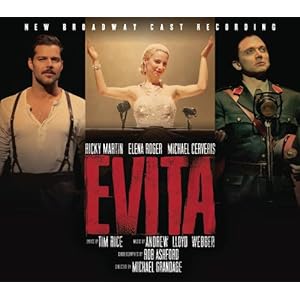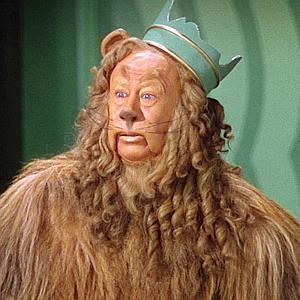The internet has been all abuzz with the new media campaign behind the sequel to The Phantom of the Opera, or as we like to call here at Theatre Aficionado at Large, POTO. There is to be a major announcement (by the Phantom himself, no less) next month regarding the new musical. The show has been in gestation for some time, known as Phantom 2, Phantom in Manhattan and now (and presumably forever) known as Love Never Dies, which is poised to make its world debut in 2010.
Meanwhile, POTO continues to break its own record as the longest running show in Broadway history, and there are productions, tours, etc. going on all around the world. The show made headlines when Lloyd Webber’s beloved kitten accidentally erased the score from his clavinova (which I find circumspect – you don’t write down what you’ve written?). Anyway, the Really Useful group is gearing a mass media blitz to hype up this new show as the next big thing from the Lloyd Webber franchise. This Phantom is on twitter.
But I’d like to wax prosaic about musical sequels: they fail. I’m not saying that Love Never Dies is going to bomb. George M. Cohan’s The Talk of New York, a sequel to Forty-Five Minutes from Broadway, was a success back in 1907. More recently, William Finn has done quite well by his Marvin trilogy – In Trousers, March of the Falsettos and Falsettoland (the latter two combined for Broadway in Falsettos). However, I’m just saying the statistics are not in Lloyd Webber’s favor. Let’s take a look at a few musical sequels from over the years…
Let ‘Em Eat Cake – The Gershwin brothers crafted a follow-up to their 1931 Pulitzer Prize winning smash Of Thee I Sing. Figuring lightning would strike, the creative team and some of the original cast reunited with this decidedly darker satire on American government and politics. President Wintergreen has been defeated in his re-election campaign, so and his Vice President, Throttlebottom, plot a Fascist takeover of the United States to get back control. The show ran 89 performances at the Imperial in 1933.
Divorce Me Darling – Sandy Wilson had a monumental success with The Boy Friend, his 1954 musical spoof of the 1920s that played for five years in London and introduced Julie Andrews to Broadway. The show was such a success that in 1965, Wilson wrote a new musical that brought the same characters to the same location (Nice, France) ten years down the road, with relationships on the rocks. However, audiences in London didn’t seem to care what Polly, Tony and the gang were up to and the show closed after 91 performances.
Bring Back Birdie – The curtain of the perennial favorite Bye Bye Birdie comes down on Albert and Rosie moving out West where he’s going to be the English teacher she’s always wanted him to be. Happily ever after, etc. In 1981, the creative team (with the exception of the late Gower Champion) was brought back together with director-choreographer Joe Layton at the helm, even returning to the Martin Beck Theatre where the original played. The failure was immense – the book was laughable and crass, the score unmemorable and the design was apparently quite hideous. Though original star Chita Rivera was back and giving it her all, her showstopping poise wasn’t enough to save the sinking ship around her. The musical closed after 4 performances. (Peter Filichia gives an in depth account of the disastrous first act of the very first preview here).
A Doll’s Life – This sequel is unlike the rest listed here, because it was a musical sequel to a play. Henrik Ibsen’s play ends with the character Nora slamming the door on her domestic life, leaving her husband and family in an attempt to find her place in the world. That door slam, once regarded as “the door slam heard round the world,” pretty much told you everything you needed to know about the characters. However, Hal Prince, directed a highly conceptual musical that begins where the play leaves off. With music by Larry Grossman and the unusual choice of Comden and Green for book and score, the tuner looked at what happened to Nora after she leaves. A metatheatrical conceit and messy libretto didn’t help endear the character to audiences or critics and the show closed after 5 performances, though it features a fascinating musical score.
Annie 2 – The musical Annie had taken Broadway and the world by storm in the late 1970s, running for 2377 performances and becoming “The musical of Tomorrow.” So naturally a sequel would be in order. Right? Of course, right. Well, Annie 2: Miss Hannigan’s Revenge turned out to be a disaster. The show brought back Tony-winning Miss Hannigan Dorothy Loudon opposite Harve Presnell as Oliver Warbucks. This time around, Hannigan was out of jail and wanted to kill Annie. Meanwhile Marian Seldes was on hand as a Congresswoman who insisted Warbucks marry within 60 days, or Annie would be taken back to the orphanage. Hannigan posed as Charlotte O’Hara a southern belle, to gain Warbucks attentions. Later she became the prim Frances Riley and was given a morbid, if fun, showstopper “But You Go On.” The show closed out of town in Washington DC, and Loudon left the project. After substantial reworking at the Goodspeed, the wholly different Annie Warbucks opened off-Broadway for a 200 performance run.
The Best Little Whorehouse Goes Public – Sex sells. And so did The Best Little Whorehouse in Texas, a fun and raunchy musical inspired by the actual Chicken Ranch of La Grange, Texas. Miss Mona runs the nicest little whorehouse you ever saw, and by the show’s end, the moral majority has seen to shutting it down with the women moving on to the next chapter in their lives. The show was a huge success and there was a film version with Dolly Parton. Well, in the sequel Miss Mona was coaxed out of retirement to run a Las Vegas whorehouse. The show, which opened in 1994, starred Dee Hoty, with Tommy Tune at the helm (assisted by Peter Masterson and Jeff Calhoun). The sequel was closer to a cheap Vegas burlesque than book musical and was universally eviscerated by critics. It folded after 16 performances, and Tommy Tune has yet to direct another Broadway musical.

